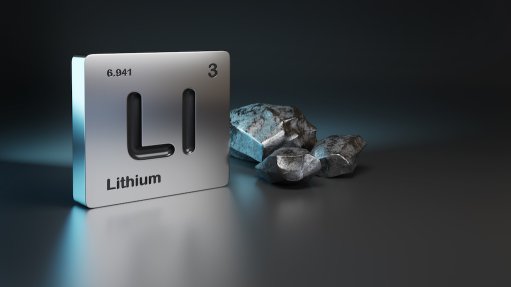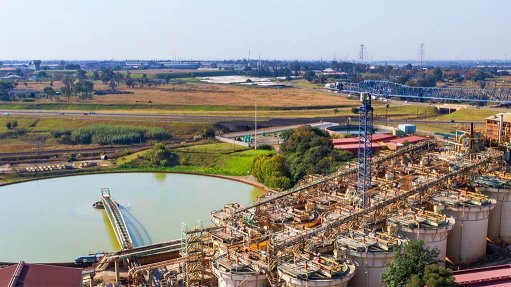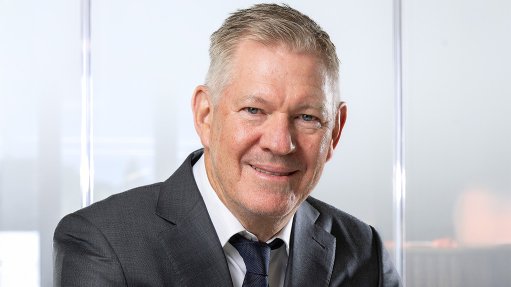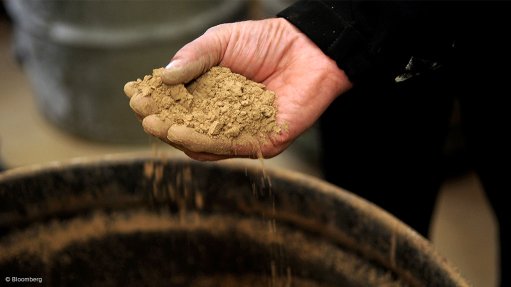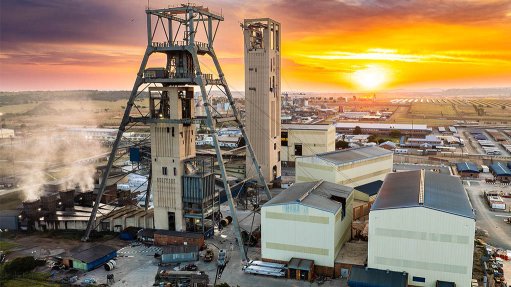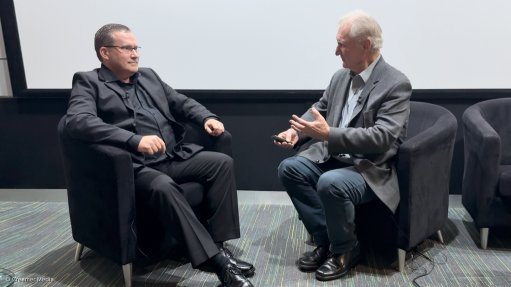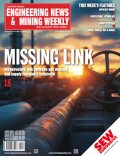Artisanal and small-scale mining workforce has tripled from 2001
Mineworkers in the artisanal and small-scale mining (ASM) industry make up the world’s largest mining workforce, with the number of such workers more than tripling from the 13-million estimate of 2001 by the International Labour Organisation, reveals the yearly report on the state of the ASM industry by online ASM data platform Delve.
Currently, Delve reveals, the ASM industry is the primary source of employment for at least 44.75-million people across 80 countries globally.
However, combining ASM’s direct labour figure with its indirect one suggests that the possibility that the scale of ASM’s contribution to livelihoods and economic growth of many people around the world is of even greater significance, states Delve. The report suggests that at least 134-million people work in related industries that support the ASM sector, according to World Bank data of 2019.
Further, the report also highlights that ASM workers supply a wide variety of minerals, in significant proportions, to the world’s raw material volumes. These minerals are critical to modern communication technologies, low-carbon and clean energy technologies, as well as luxury jewellery goods.
As such, the report, which was compiled in partnership with the World Bank and Pact, reveals that mineral production from the ASM industry makes up 25% of total global diamond supply, 20% of the world’s gold supply and 80% of the world’s sapphires. ASM also supplies between 18% to 30% of the world’s cobalt – a key battery metal powering the world’s clean energy transition.
BETTERING ASM LIVELIHOODS
The report suggests that solutions to creating and improving on decent work in ASM industry can be straightforward, affordable and highly effective, improving not only the health and safety of miners, their families and communities, but equally the balance sheet of mining entities and mineral sourcing companies.
Through examples, the report shows that decent work in ASM is possible if prioritised and reveals six key findings, or what it calls “reflections”, on how best to advance decent work principles within ASM in the future.
However, Delve also states that more data, attention and investment in the ASM sector will be needed to achieve the United Nations eighth Sustainable Development Goal (SDG) – the promotion of sustained, inclusive and sustainable economic growth, full and productive employment and decent work for all.
The reflections make a firm call for action to capitalise on existing international regulatory initiatives governing mine site practices to deepen global commitments on the decent work agenda. The reflections also highlight the critical importance of partnerships, notably in-country and regional, in improving labour, social and environmental standards at mine sites.
The first reflection regards investments in health and safety being urgently needed for the ASM industry. In this regard, Delve says improved occupational health and safety is a collective responsibility, which is both feasible and beneficial to all involved.
The second reflection points to the need for improved data on ASM’s economic contributions through improved national statistics that can prove the value of ASM to national and global growth. According to the report and moving forward, it says more disaggregated economic data will be needed to showcase ASM’s economic contributions, beginning with its contribution to gross domestic product as well as more accurate figures linked to the value of exports.
Reflection number three involved the targeted interventions in relevant areas that can help to improve miners’ lives and improve their pay, health and well-being. In this regard, the report points out that the elimination of mercury in the ASM industry may be the most powerful example of such an approach whereby efforts to eliminate its use are combined with other formalisation efforts meant to improve the lives of miners – securing mine titles and permits, access to financing and environmental protection.
The fourth reflection is that of engaging the socio-economic network of actors involved in ASM that can help overcome entrenched behaviours and change labour practices which continue to undermine the advancement of occupational health and safety in the sector.
The fifth reflection is that of concerted partnerships with ASM associations needed to advance the decent work agenda. This attention is long overdue, states Delve, which adds that mining associations possess extensive networks from the local to national levels to advance this endeavour.
The sixth and last reflection focuses on the role of women working in the ASM industry, which the report states is essential to the goal of decent work for all. Advancing gender equality with respect to SDG8 and ASM is possible through the completion of basic census data on the number of women working in ASM, disaggregated by country.
Also, advancing gender equality also involved the streamlining of gender disaggregated baseline surveys into all ASM formalisation projects to ensure that projects are aware of gender gaps and seek to close them.
Reforming the gender divide also involves the reforming of laws which discriminate and undermine women’s capacity to be entrepreneurs, access finance and own assets.
Further, the report states that the closing of gender gaps is a key reporting obligation for all responsible sourcing initiatives and a key standard for any occupational health and safety system at mine sites.
Comments
Announcements
What's On
Subscribe to improve your user experience...
Option 1 (equivalent of R125 a month):
Receive a weekly copy of Creamer Media's Engineering News & Mining Weekly magazine
(print copy for those in South Africa and e-magazine for those outside of South Africa)
Receive daily email newsletters
Access to full search results
Access archive of magazine back copies
Access to Projects in Progress
Access to ONE Research Report of your choice in PDF format
Option 2 (equivalent of R375 a month):
All benefits from Option 1
PLUS
Access to Creamer Media's Research Channel Africa for ALL Research Reports, in PDF format, on various industrial and mining sectors
including Electricity; Water; Energy Transition; Hydrogen; Roads, Rail and Ports; Coal; Gold; Platinum; Battery Metals; etc.
Already a subscriber?
Forgotten your password?
Receive weekly copy of Creamer Media's Engineering News & Mining Weekly magazine (print copy for those in South Africa and e-magazine for those outside of South Africa)
➕
Recieve daily email newsletters
➕
Access to full search results
➕
Access archive of magazine back copies
➕
Access to Projects in Progress
➕
Access to ONE Research Report of your choice in PDF format
RESEARCH CHANNEL AFRICA
R4500 (equivalent of R375 a month)
SUBSCRIBEAll benefits from Option 1
➕
Access to Creamer Media's Research Channel Africa for ALL Research Reports on various industrial and mining sectors, in PDF format, including on:
Electricity
➕
Water
➕
Energy Transition
➕
Hydrogen
➕
Roads, Rail and Ports
➕
Coal
➕
Gold
➕
Platinum
➕
Battery Metals
➕
etc.
Receive all benefits from Option 1 or Option 2 delivered to numerous people at your company
➕
Multiple User names and Passwords for simultaneous log-ins
➕
Intranet integration access to all in your organisation





